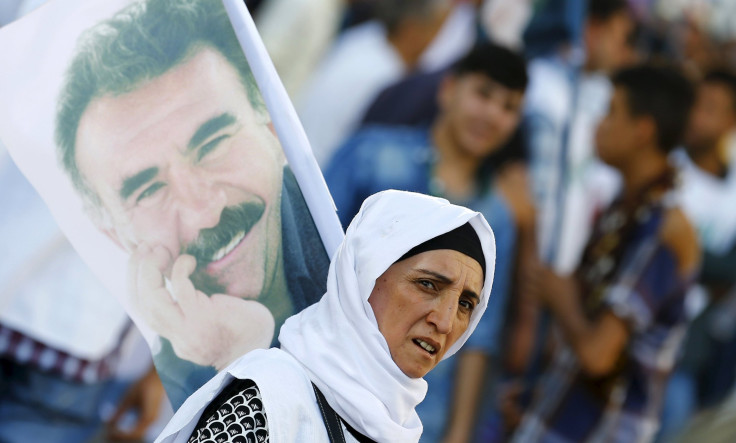Three Turkish Soldiers Killed As PKK Steps Up Attacks After Air Strikes

ISTANBUL (Reuters) - Kurdistan Workers Party (PKK) militants killed two soldiers and wounded 31 in a suicide attack overnight in eastern Turkey, the army said on Sunday, as violence escalated following Ankara's air bombardment targeting Kurdish militants.
PKK militants drove a tractor filled with explosives into a military outpost in the Dogubeyazit district of the eastern Agri province bordering Iran, the army said in a statement.
Four of the wounded were in serious condition, it said.
The PKK also attacked a unit on patrol in the southeastern province of Mardin late on Saturday night, killing one soldier and wounding seven, the army said.
The PKK announced it was stepping up attacks in mid-July over what it said were ceasefire violations, but has responded with yet more violence since Turkey began a campaign of air strikes on PKK camps in northern Iraq on July 24, in what the prime minister has called a "synchronized fight against terror".
Ankara granted a U.S.-led coalition battling Islamic State in Syria and Iraq access to its bases and launched air strikes against the Islamist militants and the PKK. However, so far the majority of Turkey air bombardment has been on PKK targets.
Turkish officials have said the strikes against the PKK are a response to increased violence from the militants. At least 16 members of the security forces have been killed in attacks by the PKK since July 20.
Military Denial
The Turkish military on Sunday also denied accusations of having killed civilians in Friday's bombardment on Zargala in Iraq's Kurdistan region, which had drawn protest the region's President Massoud Barzani.
The army said an investigation revealed there to be no civilian residential areas within the impact range of the bombardment. Turkey's foreign ministry said on Saturday the strike on Zargala was targeting senior PKK commanders and accused PKK militants of using civilians as human shields.
Barzani also called on the PKK to distance the war from Iraq's Kurdistan region in order to spare civilian lives.
Western allies, including NATO and the United States, have supported Turkey's military actions but several have also urged it not to use excessive force, nor to let years of peace efforts with Kurdish militants collapse.
Turkish President Tayyip Erdogan initiated negotiations in 2012 to try to end the PKK insurgency which has killed 40,000 people since 1984. The ceasefire, though fragile, had been holding since March 2013.
On Tuesday, Erdogan said it had become impossible to continue the process and urged parliament to strip politicians with links to the militants of immunity from prosecution.
Turkey's campaign on Islamic State in Iraq and Syria has aroused suspicion among some Kurds as being a cover to prevent Kurdish territorial and political gains.
© Copyright Thomson Reuters 2024. All rights reserved.





















